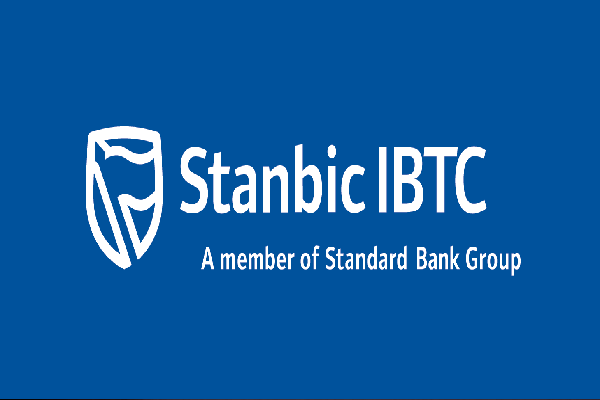The share price of Stanbic IBTC Holdings Plc, on Thursday rose N1.40 or 3% on Thursday, in apparent positive investor reaction to the release of its audited financials for the year ended December 31, 2018, on a day the benchmark All-Share index of the Nigerian Stock Exchange (NSE) lost 0.35%.
Highlights of the result showed that net profit grew faster than gross earnings, just the same as its peers that have so far presented their figures to the NSE, while unlike in 2017 when there was a net impairment charge on financial assets of N25.58bn, the group recorded a write-back of N2.94bn; just as other revenue jumped 53.23%.
The directors have recommended a final dividend of N1.50, as against the 65 kobo, bringing total payout for the year to N3.00 from Earnings Per Share of N7.04; compared to N1.05 in 2017, from N4.60 in 2017, making it the highest among its peers so far. The payout, represents a dividend yield of 3.22%.
While qualification date for the dividend is on March 20, closure of register is billed for March 21 to 28, the dividend will be proposed for approval by shareholders at the annual general meeting slated for June 19, with payment slated for the following day.
Gross earnings for the period limped 4.67% from N212.43bn in 2017 to N222.36bn; with interest income dropping by 3.68% from N122.91bn to N118.38bn, the lion’s share of which was the N81.573bn from corporate and investment banking, a drop from N87.55bn in 2017. Interest expenses rose 2.16% to N40.17bn, from N39.32bn, boosted by the N29.737bn from corporate & investment banking also, up from N25.207bn; resulting in 6.43% slide in net interest income from N83.59bn to N78.21bn.
Non-interest revenue however climbed 15.05% from N89.18bn to N102.62bn; fee and commission revenue rose 19.84% from N59.43bn to N71.22bn; fee and commission expenses soared 302.93% to N1.37bn from N0.34bn; leaving net fee and commission income at N69.85bn, up from N59.43bn in the prior full year.
Trading income managed to rise 7.42% to N31.31bn from N29.15bn, almost entirely from corporate and investment banking; other revenue climbed from N0.95bn to N1.448bn; resulting in income before credit impairment charges of N180.81bn, compared to N172.77bn, a 4.66% increase.
Credit impairment credit stood at N2.94bn, from Income after credit impairment charge of N25.577bn in 2017, helped by the N3.594bn credit which arose from corporate and investment banking, up from the N10.607bn charge; followed by N618m charge from the personal and business banking segment, which was a significant improvement over the N14.97bn of previous year. Income after credit impairment charges therefore stood at N183.75bn, which was 24.84% better than previous year’s N147.19bn; while operating lease expenses rose 11.13% to N95.6%, from N86.03bn.
Staff costs increased by 18.59% to N43.03bn, up from N36.28bn; other operating expenses rose from N49.74bn to N52.57bn, swelled by a combination of the N7.836bn paid as Asset Management Corporation of Nigeria (AMCON) expenses (statutory levey of 0.5% of total assets on and off balance sheet items), up from N5.034bn; followed by N6.933bn for information technology, from N5.984bn; depreciation expenses of N4.432bn, from N4.129bn; while deposit Insurance Premium paid to NDIC (Nigeria Deposit Insurance Corporation) got N4.212bn, up from N2.482bn in 2017; among others. Profit before tax therefore stood at N88.15bn, up from N61.17bn, representing 44.12% rise. Profit after tax for the year increased 53.86% to N74.44bn from N48.38bn.
According to the balance sheet, total assets increased 21.75% from N1.366tr, to N1.663tr, the bulk of which was the N441.261bn total loans and advances, up from N372.088bn. Total liability for the period stood at N1.423tr, improving by 20.56%, compared to the previous N1.201tr, with customer deposits of 967.964bn, up from N815.363bn; leaving shareholders fund of N239.667bn, up from N185.218bn, improving by 29.4%.
Trending Today
Menu








